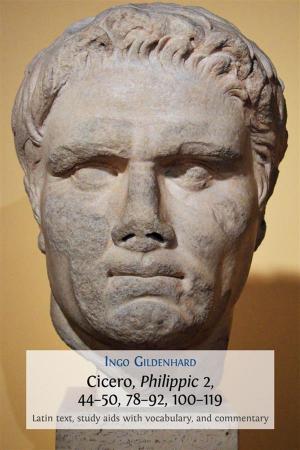Don Carlos Infante of Spain
A Dramatic Poem
Fiction & Literature, Poetry, Literary Theory & Criticism| Author: | Friedrich Schiller. Translated by Flora Kimmich. | ISBN: | 9781783744497 |
| Publisher: | Open Book Publishers | Publication: | June 4, 2018 |
| Imprint: | Language: | English |
| Author: | Friedrich Schiller. Translated by Flora Kimmich. |
| ISBN: | 9781783744497 |
| Publisher: | Open Book Publishers |
| Publication: | June 4, 2018 |
| Imprint: | |
| Language: | English |
Schiller’s Don Carlos, written ten years before his great Wallenstein trilogy, testifies to the young playwright’s growing power. First performed in 1787, it stands at the culmination of Schiller’s formative development as a dramatist and is the first play written in his characteristic iambic pentameter. Don Carlos plunges the audience into the dangerous political and personal struggles that rupture the court of the Spanish King Philip II in 1658. The autocratic king’s son Don Carlos is caught between his political ideals, fostered by his friendship with the charismatic Marquis Posa, and his doomed love for his stepmother Elisabeth of Valois. These twin passions set him against his father, the brooding and tormented Philip, and the terrible power of the Catholic Church, represented in the play by the indelible figure of the Grand Inquisitor.
Schiller described Don Carlos as "a family portrait in a princely house.” It interweaves political machinations with powerful personal relationships to create a complex and resonant tragedy. The conflict between absolutism and liberty appealed not only to audiences but also to other artists and gave rise to several operas, not least to Verdi’s great Don Carlos of 1867. The play, which the playwright never finished to his satisfaction, lives on nonetheless among his best-loved works and is translated here with flair and skill by Flora Kimmich. Like her translations of Schiller’s Wallenstein and his Fiesco’s Conspiracy at Genoa, this is a lively and accessible rendering of a classic text. As with all books in the Open Book Classics series, it is supported by an introduction and notes that will inform and enlighten both the student and the general reader.
Schiller’s Don Carlos, written ten years before his great Wallenstein trilogy, testifies to the young playwright’s growing power. First performed in 1787, it stands at the culmination of Schiller’s formative development as a dramatist and is the first play written in his characteristic iambic pentameter. Don Carlos plunges the audience into the dangerous political and personal struggles that rupture the court of the Spanish King Philip II in 1658. The autocratic king’s son Don Carlos is caught between his political ideals, fostered by his friendship with the charismatic Marquis Posa, and his doomed love for his stepmother Elisabeth of Valois. These twin passions set him against his father, the brooding and tormented Philip, and the terrible power of the Catholic Church, represented in the play by the indelible figure of the Grand Inquisitor.
Schiller described Don Carlos as "a family portrait in a princely house.” It interweaves political machinations with powerful personal relationships to create a complex and resonant tragedy. The conflict between absolutism and liberty appealed not only to audiences but also to other artists and gave rise to several operas, not least to Verdi’s great Don Carlos of 1867. The play, which the playwright never finished to his satisfaction, lives on nonetheless among his best-loved works and is translated here with flair and skill by Flora Kimmich. Like her translations of Schiller’s Wallenstein and his Fiesco’s Conspiracy at Genoa, this is a lively and accessible rendering of a classic text. As with all books in the Open Book Classics series, it is supported by an introduction and notes that will inform and enlighten both the student and the general reader.















